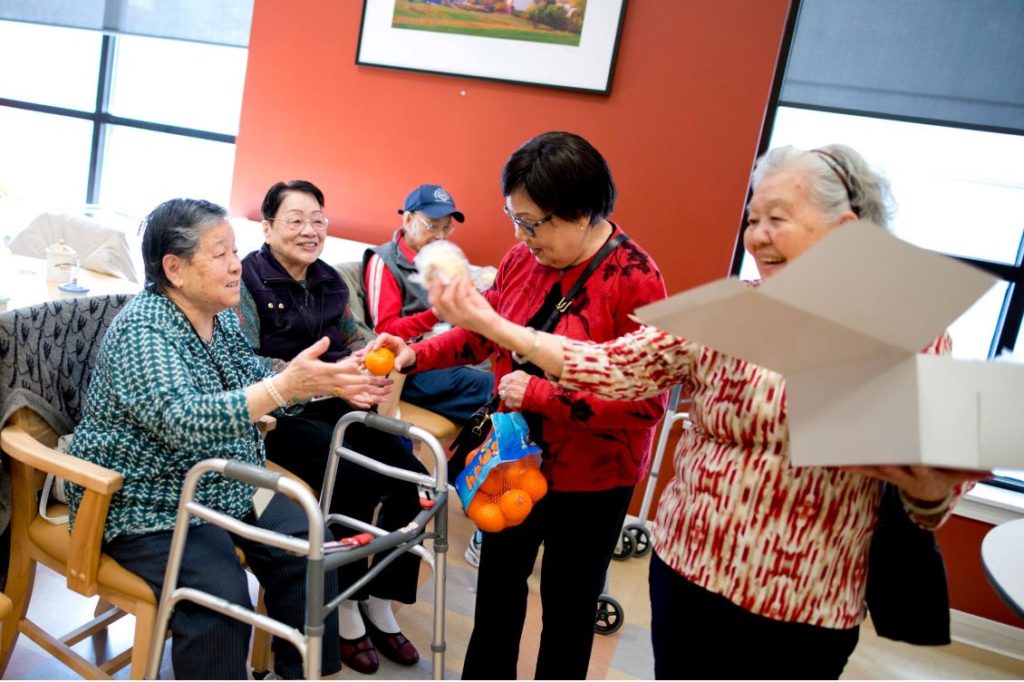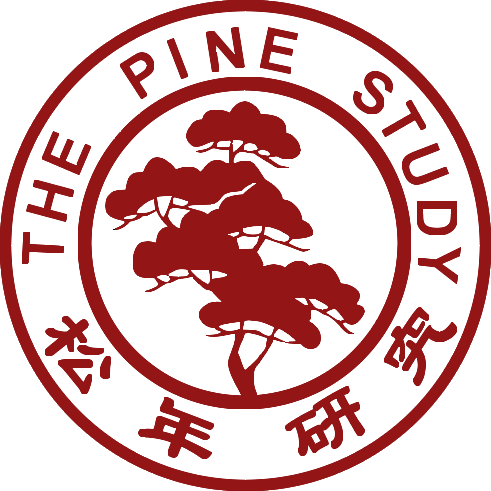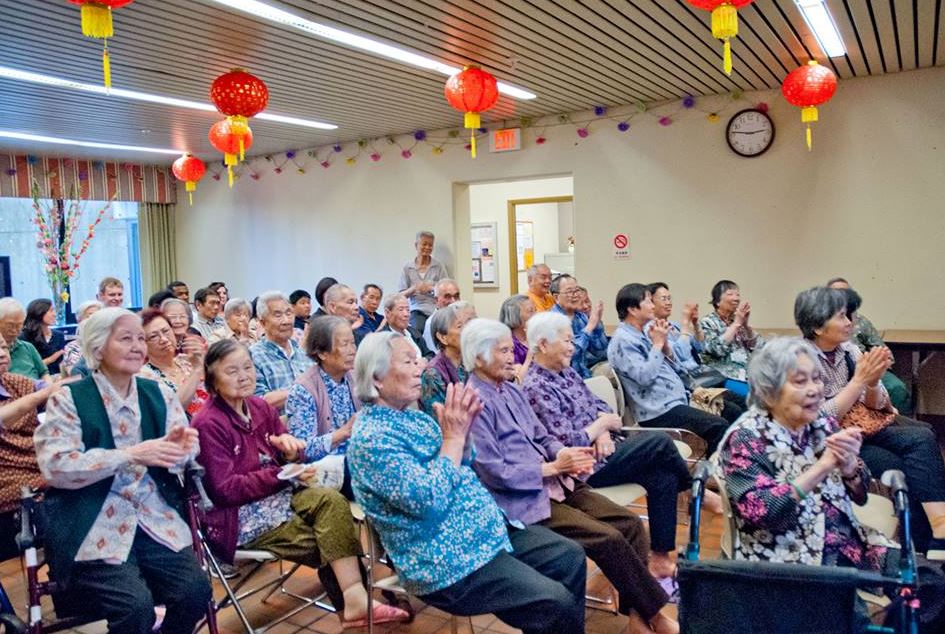
By Felix Poon, AsAmNews Intern
An elderly Chinese American man lives by himself in subsidized housing for seniors in Boston. He struggles with dementia, so he sticks to familiar places, otherwise he gets lost. And it’s hard for him to get help, because he doesn’t speak English.
The man’s story will likely become more common in the Chinese American community. A study from Rutgers University found the population of Chinese American elders has grown at a rate four times higher than the general older adult population.
“As this population ages, they are increasingly susceptible to memory loss and lacking the necessary supports for healthy aging,” the study states. The researchers published their study in a special issue of the Journal of the American Geriatrics Society on memory loss and dementia among older Chinese Americans.
Yiwei Chen served as lead author on three of the research studies in the special issue, Transforming Asian Health Equity
“I found that high levels of perceived stress are associated with poor cognitive function among older Chinese Americans,” Chen told AsAmNews. She found that stress can be due to linguistic and cultural barriers.
“Even everyday kind of tasks like going to doctors for health checkups, [they] need to describe [their] symptoms. That requires language proficiency.” Chen said sometimes they’ll expect their adult children to support them with translation, or transportation to medical visits, but these can trigger conflict if their adult children are unable to provide that kind of support, or if expectations are mismatched due to generational or cultural differences.
Asian Americans make up 6% of the national population, but they remain an understudied group among clinical research funded by the National Institutes of Health (NIH), making up only 0.17% of the total NIH research funding budget from 1992 to 2018, as reported by AsAmNews. The NIH defended their funding practices, saying “disease affects all populations” and citing that 9% of all participants in NIH-funded clinical research in 2018 were Asian.
But Chen didn’t think this was adequate. “You can’t just apply what you found in the general American population to this specific population,” she said. She pointed out that many clinical trials exclude people who don’t speak English, and even for those who are fluent in English, cognitive tests may be biased with certain cultural knowledge that older Chinese Americans don’t have.
Dr. Xinqi Dong of Rutgers University was even more emphatic. “Do you think we all have the same cultural customs…and family values?…Do you think we don’t…digest and metabolize medications differently? There’s plenty of evidence that suggests there are ample differences…. If the U.S. is a melting pot… then why shouldn’t we truly understand the culturally nuanced issues in the Chinese and Asian populations?”
Dr. Dong is the principle investigator of the Population Study of Chinese Elderly, or PINE. “PINE is the largest longitudinal cohort study to ever exist in the Western Hemisphere, that studies the health…of Chinese Americans in the United States,” Dong explained.

Dong spearheaded the creation of PINE because he saw a dearth in this kind of research. “The primary purpose of the PINE study is to understand the intersections of cultural and social determinants of family conflict, intergenerational relationships and mental health outcomes,” he said.
All of the data and articles published in this special issue were made possible by the PINE longitudinal study. According to Rutgers University, these articles are the first to extensively study memory loss and dementia in the context of immigration, gender, psychological distress, education, social engagement, and oral health among older Chinese Americans.
One of the takeaways from this research is that more culturally-sensitive care and programming are needed. Dong argued for researchers, social workers, and policymakers to collaborate to reduce health disparities and expand access to culturally-sensitive care. “Developing programs and interventions that reduce stress, increase activity engagement, and improve quality of care, is necessary to limit memory loss among the aging U.S. Chinese population,” he said.
The Greater Boston Chinese Golden Age Center is an organization in Boston that provides the programs and interventions Dong talks about. Megan Cheung, the center’s Associate Director and Clinical Director, wasn’t surprised by the findings from the PINE-based research studies. “A lot of elders mentioned that if they’re not able…to communicate with people, they just say that they’re dumb…they can’t see, they can’t hear,” Cheung said. She pushes back on their self-deprecation, chalking it up to linguistic barriers instead of any failure on their part. But still, it’s more stress for them.
“And if you have more stress,” Cheung said, “then your mental capacity declines.”
The Golden Age Center tries to help alleviate that stress for the Greater Boston Chinese community. “People come in for whatever they need,” Cheung said. “We serve a broad spectrum of people [with] different health conditions and mental health conditions… we serve Asian speaking elders. No matter who they are, they’re welcome to come in.”

One example of someone the center has helped is the older Chinese American man with dementia, the one who gets lost when he’s not in familiar territory. Cheung told AsAmNews, “We organize home delivered meals for the evening for him, and we organize [his] home care services, so he’s getting homemaking and personal care services at home.”
If it wasn’t for these services, Cheung said, “he’d probably end up in the nursing home, because he doesn’t have anyone.”
AsAmNews has Asian America in its heart. We’re an all-volunteer effort of dedicated staff and interns. Check out our Twitter feed and Facebook page for more content. Please consider interning, joining our staff or submitting a story.


RE: Older Chinese Americans face increased stress and memory loss: Thank you for reporting on the situation.
And thanks to Megan Cheung for being there when needed.
We’ll definitely try to reduce our stress.